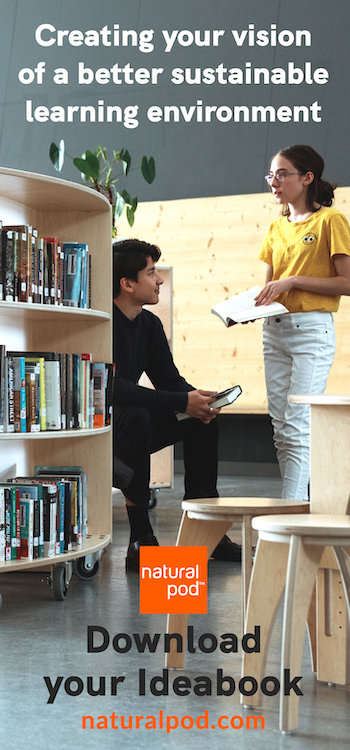By Charles Orgbon
Teen CEO and founder of Greening Forward, Charles Orgbon III, will be delivering a keynote address at the Green Schools National Conference on how schools can create a culture of youth leadership. Engage with Charles on Twitter at @corgbon.
At this moment, there are more young people in the world than ever before – and they are all seemingly ready to make a difference: to change the world.
That – to me – screams world-changing potential, yet the environmental movement is massively squandering the talent of today’s young people.
Why aren’t young people on your board of directors? Why aren’t they in your focus groups, advisory panels, and media publications? Frankly, adults have not quite explored what meaningful youth engagement looks like. If we hope to ever solve complex issues like creating greener schools, climate change, and mass extinction, we must make room for all stakeholders at the decision-making table, especially young people.
Luckily, in the 2010 Teen Voice study sponsored by the Search Institute, Best Buy, and Weber Shandwick, we find the answer to the age-old question, “How do adults foster and encourage newer generations to make a difference in the world?” The report identifies three distinct characteristics in young people who have what it takes to effectively bring about change in their communities: passion, access to meaningful relationships, and voice. Adults play a critical role in each of these characteristics.
Passion
Everyone has a spark, represented by what we truly enjoy in life – whether it’s athletic, academic or social. When we look at young people focused on their life’s passion, we see that overall they are better prepared to become a leader in their community. The late Judy Bonds, a grassroots anti-coal mountaintop removal activist, reminded youth that, “The world is waiting on you to change it.” Adults can play a meaningful role in helping young people unlock their passion by introducing them to unique challenges and experiences.
Meaningful Relationships
Having a passion is a start, but if one’s mission is to really stand out and be a “purple cow” (as Seth Godin might call it), building meaningful relationships is essential. We all need role models to help us nourish our strengths and mitigate our weaknesses. Youth most often look up to the people who listen to them, are interested in them, http://www.health-canada-pharmacy.com challenge them – and laugh and learn with them.
Voice
Emerging leaders with a strong passion and support are ready to influence what matters to them, but if adults do not provide these young people with substantive leadership opportunities to share their voice, then their voice remains silenced. The first two themes of passion and meaningful relationships are prerequisites; it is then also up to adults to provide young people with opportunities and tools that allow them to drive the change they desire to see in the world.
For years, youth service-learning organizations have used results from the Teen Voice studies to consider how they might need to improve the focus of their organization.
Even more interesting is that these rules to engaging youth are applicable to many facets of our lives.
When we as a global community begin to foster this plan to give our youth opportunities to take on leadership roles in communities, assist in developing our youth’s strengths through meaningful relationships, and build the foundation to allow youth to express themselves, the benefits to societies are limitless.
Resolving our world’s issues should not be left up only to the so-called “experts.” The youth of today are motivated – right now – to become catalysts for change and they have value to add to community change-making.
And to do that, they will not only need passion, access to mentor relationships, and voice. They’ll need the support of the generations that precede them.
Charles invites attendees to engage with him on Twitter @corgbon.
Charles Orgbon is the founder of Greening Forward, an organization supporting young environmental change-makers across the globe. Greening Forward partners benefit from more than 120 curriculum resources, grant programs, skill-building tools, and mentorship opportunities as they work to effect environmental change at the local and global level. Currently, Greening Forward directly serves more than 2,000 young leaders who plan rallies, events, and workshops that engaged 10,000 other community members. Greening Forward youth are advocating for bike-friendly communities in Denver, bringing organic foods to low-income communities through aquaponics in the Makiki Valley, developing young leaders through capacity-building conferences in Atlanta, and protecting the Low Country’s vital estuaries in South Carolina. Learn more at greeningforward.org


